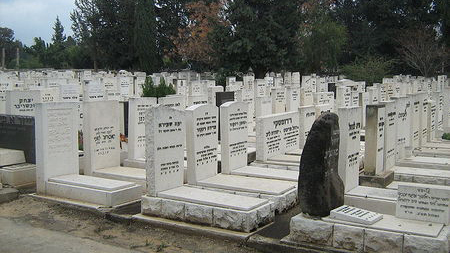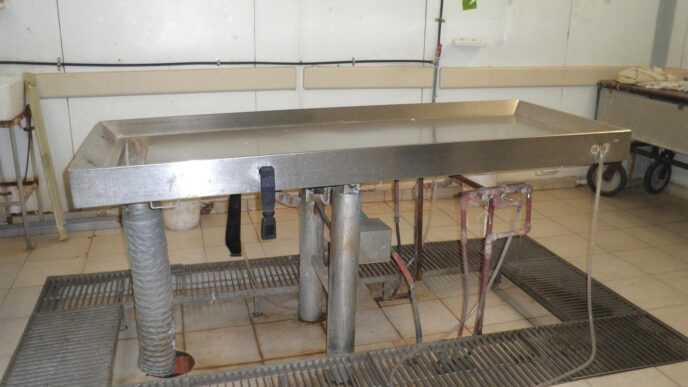
Three female workers at the Carmiel cemetery have been struggling for years against low wages and gender discrimination. Last week, following a Histadrut campaign, they won recognition that local labor laws apply to them, which should translate to improved conditions.
The workers, who are ultra-Orthodox, are part of the chevra kadisha (literally “holy society”), who work to cleanse bodies before burial according to Jewish law, a practice known as tahara. The ritual is considered one of the most important mitzvot in Jewish law, and is done according to gender (male workers cleaning male bodies and female workers cleaning female). The male workers received better working conditions then the female workers, despite exact same work requirements.
"We asked to improve our conditions a little, because we work very hard," said one of the workers, who asked to remain anonymous. "I decided to practice tahara after my mother, peace be upon her, passed away. I entered the purification room and was very moved. I wanted to take part in the mitzvah as well, and I have been working here for several years now."

“The work is hard, physically and emotionally,” she continued. “It involves lifting the bodies of the deceased, washing each limb separately, and then pouring water over the body. The whole process is done with reverence, while praying, and taking care to maintain the honor of the deceased.”
She explained that the workers receive calls at any hour of the day or night, including on Shabbat and holidays. They are always ready to drop what they’re doing and do what they see as holy work.
“We encounter hard things too – women who died after surgery and arrive with stitches, people who have been hit by cars, murder victims,” she added. “These are hard things that stay with you.”
"It's a job I do happily, because I know I'm doing kindness to the deceased in this way," she said, but adds that she keeps her occupation as a chevra kadisha a secret, even from her immediate family. "It is a mitzvah that we keep close to our hearts."
"This is a public that in the past would not have been organized"
The workers approached the Carmiel branch of the Histadrut through Batsheva Fahima, chairwoman of the workers' union of the Carmiel Religious Council. They were greeted by the secretary of the trade union, Mazal Hekesh Shomron.
"I am sitting here, and in front of me are older ultra-Orthodox women, in their late sixties, who are doing holy work. They tell me about the hard work they do and in the end, show me their pay slip. I could not believe what I saw," Hekesh Shomron said.
"The pay slip said that they were paid NIS 120 'per body’ that they washed. They didn’t receive the rights they deserve, like vacations, sick days, and holiday pay," she said. “When they had to wait in the cemetery for the body to arrive, sometimes for hours – they did not receive wages.”
"I went to the religious council and demanded that the provisions of the labor constitution be applied to them,” Hekesh Shomron continued. “I made it clear that this is an issue we are also willing to fight for and go to court if necessary. I am pleased to say we were met with cooperation and last December, the workers were absorbed as regular workers, in an orderly manner."
Now that the workers have won recognition that labor laws apply to them, they will receive wage increases and working conditions in accordance with the rights of workers in the public sector. From now on, they will be rewarded for monthly standby hours and will receive a wage supplement for working in a hazardous environment.
"This is a small group of workers, but one that does sacred work, and I am very proud of this important initial achievement that we were able to achieve," said Yoav Klein, chairman of the Carmiel branch of the Histadrut. "I welcome the workers and would like to empower Mazal Hekesh Shomron to keep up her important work. I hope this change will be adopted elsewhere in Israel. I also thank Peretz, the chairman of the religious council, for asking for the Histadrut’s cooperation."
"We were able to set a very significant precedent here, because many of the chevra kadisha women around the country are employed in exploitative conditions, and sometimes even work as volunteers," said Batsheva Fahima.
For two or three weeks if there was no work, they wouldn’t get paid. Now they will have a steady income. It's exciting and I hope more places will follow us.”
“It is important ultra-Orthodox workers know who to contact at the Histadrut. This is a public that in the past would not have been organized,” Fahima continued..






